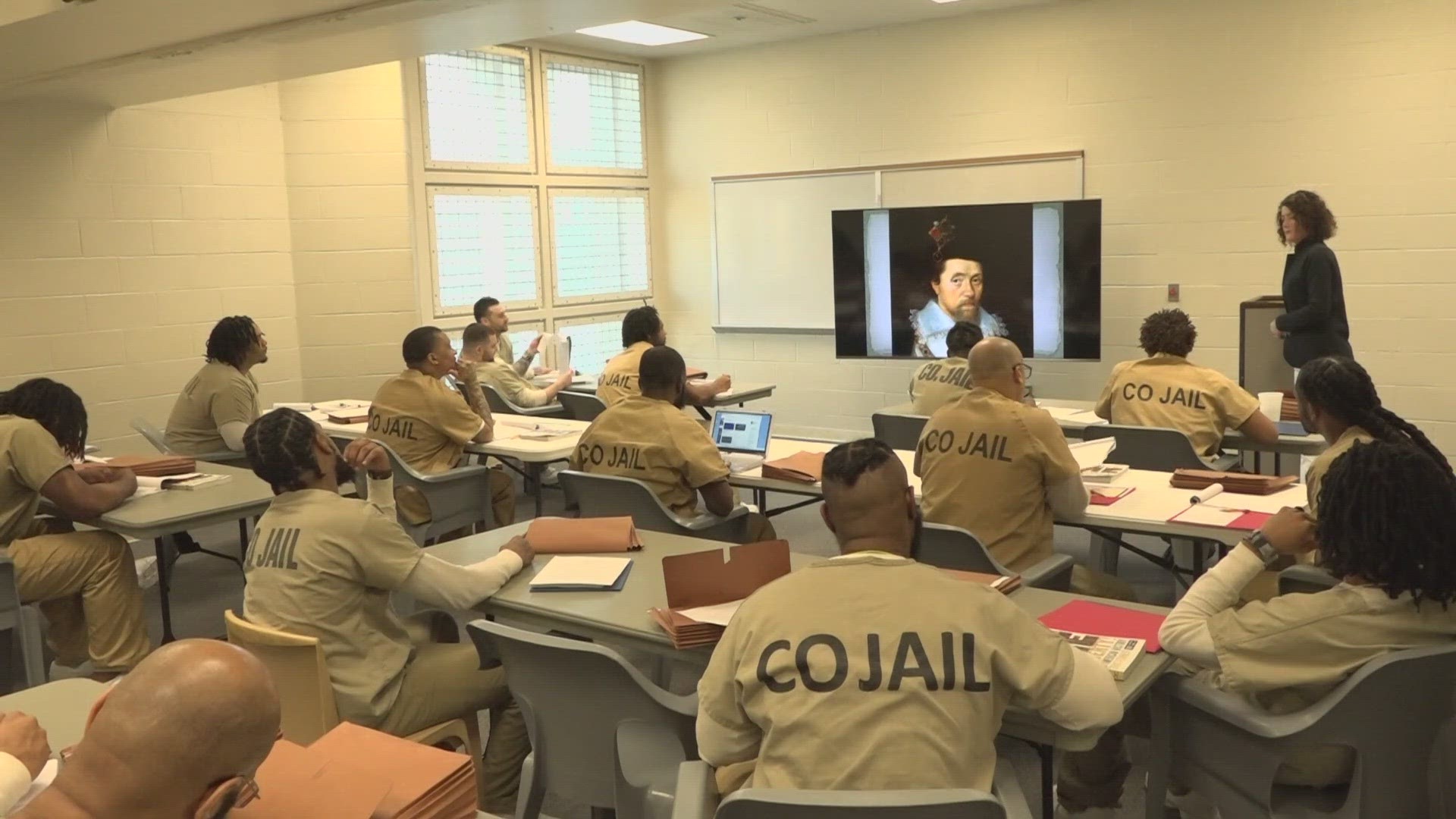ST. LOUIS COUNTY, Mo. — Inmates at the St. Louis County Jail are able to take college classes through the PACE program, offered by St. Louis Community College.
PACE stands for Progress Attained through College Education.
Multiple national studies show that recidivism is greatly reduced among inmates who participate in education programs, administrators said.
Inmate Christopher Robinson characterized his experience.
“I do like it. It’s not that hard,” said Robinson. “I guess because I had taken college classes, before, I was already kind of into it before my incarceration. So, it’s not that hard, to me.”
St. Louis Community College Chief Academic Officer Elizabeth Perkins said PACE features curriculum designed to prepare people who are incarcerated for any future higher education pathway.
“The content is exactly the same,” Perkins said. “It is the exact same course our students receive at any of our campuses or online.”
Robinson described his coursework.
“I have four classes,” he said, “History of Modern Art, Oral Communications, American History to 1865 and Philosophy. They do have a reading class, also.”
Jamie Christy teaches History 101, and she said her students understand the irony of where their classroom is located. The classroom window is covered with thick wire grates.
“I enjoy coming here,” Christy said. “My students will be the first to tell me, ‘Well, we violated the political or social contract, and that’s why we’re here.’ Sometimes we have some very interesting conversations about that very thing.”
Some people might say, "What else do they have to do? They’re in jail." However, everybody involved acknowledges being incarcerated has a way of focusing your thinking.
Robinson says education has impacted him, personally.
“During situations I might get into in the pod with different commanding officers or other inmates, I’m able to reason and use my logic in order to divert those situations from maybe, possibly getting out of control,” said Robinson.
While these inmate-students’ futures may be uncertain, education can be a part of it.
Perkins said, “Once these inmates are released, or even if they are transferred to a state department of corrections, a lot of those have prison education programs with four-year institutions. So, now they have a full year of college completed.”
Perkins said when administrators look collectively at the grade point averages of all the cohorts of students at SLCC - all of the Phi Theta Kappa students, all of the honor students, or all of what she described as the “super high-achieving” early college graduates - it is still lower than the cumulative GPA of PACE program participants.
“So, as a cohort, they have our highest GPA in the college, and we’re really, really proud of that,” said Perkins.
“I think it tells me anything is possible,” Perkins said. “Students can accomplish really great things if they are given the opportunity to do so.”
Robinson took college classes prior to his incarceration. A reporter asked if he planned to continue.
“Yes,” he said, “I do plan to continue. I would like to receive a bachelor’s degree in mechanical engineering.”
The partnership between St. Louis Community College and St. Louis County Justice Services started in January.
Each class contains 12-15 students.
To watch 5 On Your Side broadcasts or reports 24/7, 5 On Your Side is always streaming on 5+. Download for free on Roku, Amazon Fire TV or the Apple TV App Store.

